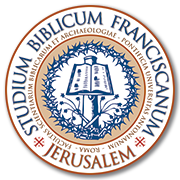The Gospel of Luke: Faith that Saves
Prof. Blajer Piotr
II semestre
In the Synoptics the noun πίστις occurs twenty-four times (not counting its compound); eight times in Matthew, five times in Mark and eleven times in Luke. It is absent in the Gospel of John. Considering the whole Luke-Acts, the number of its occurrences reaches twenty-six (eleven in Luke and fifteen in Acts). This number, though not as impressive as for example in the letter to the Romans (40 times), to the Galatians (22 times) or to the Hebrews (32 times), is certainly notable and invites for a further study. In Luke the noun appears in ten different episodes. In five episodes Jesus rebukes His disciples, or those who follow Him for the lack of their faith (see 8:25; 17:5-6; 18:8; 22:32), and in a same number of cases He praises the faith of those who approach Him with confidence (see 5:20; 7:9; 7:50; 8:48; 17:19; 18:42). In four passages Jesus expressly declares that salvation is the result of faith “your faith has saved you (go in peace)”. The course applies narrative criticism to elucidate some passages that highlight the correlation between faith and salvation: the Pardon of the Sinful Woman 7:36-50; the Healing of Woman with Hemorrhage 8:43-48; the Cleansing of Ten Lepers 17:11-19; the Healing of the Blind Beggar 18:35-43.
Requirements. Students who wish to take the course are required to possess a good knowledge of Biblical Greek, as well as the ability to offer an idiomatic translation of the Greek text into a modern language. At least a general knowledge of the narrative method is required. Students who are unfamiliar with the method should consult one of the manuals on narrative criticism.
Goal and methodology. The course aims to familiarize the students with Jesus’ teaching in its narrative context. The methodology used in this course narrative criticism.
Final evaluation. Oral exam.
Bibliografia
Students are encouraged to choose one of the best commentaries in their own language. These may be accompanied by:
G.C. Bottini, Introduzione all’opera di Luca (Analecta 35), Jerusalem 1992;
F. Bovon, Luke the Theologian: Fifty-Five Years of Research (1950-2005), Waco TX 2006;
L.D. Chrupcała, Il Vangelo di Luca: Analisi sintattica (Analecta 86), Milano 2018;
M.A. Powell, What is Narrative Criticism?, Minneapolis MN 1990;
J. Resseguie, Narrative Criticism of the New Testament. An Introduction, Grand Rapids MI 2005;
J.B. Green (ed.), Methods for Luke (Methods in Biblical Interpretation), Cambridge 2014;
J.A. Fitzmyer, The Gospel according to Luke (AB 28-28A), New York NY 1981-1985;
F. Bovon, Das Evangelium nach Lukas (EKKNT 3), Neukirchen 1989-2009;
J. Nolland, Luke 9:21-18:34 (WBC 35B), Dallas TX 1993;
J.B. Green, The Gospel of Luke, Grand Rapids MI 1997;
D.L. Bock, Luke 9:51-24:53 (BECNT), Grand Rapids MI 1998;
F. Mickiewicz, Ewangelia według świętego Łukasza. Rozdziały 12-24 (Nowy Komentarz Biblijny. Nowy Testament), Częstochowa, 2011;
M.C. Parsons, Luke (Paideia Commentaries on the New Testament), Grand Rapids MI 2015;
J.R. Edwards, The Gospel according to Luke (The Pillar New Testament Commentary), Nottingham 2015;
M. Crimella, Luca: Introduzione, traduzione e commento (Nuovissima versione della Bibbia dai testi originali 39), Cinisello Balsamo 2015;
B.E. Reid - S. Matthews, Luke 10-24 (Wisdom Commentary Series 43B), Collegeville MN 2021;
M. Patella, “Luke”, in J.J. Collins - G. Hens-Piazza - B.E. Reid - D. Senior (ed.), The Jerome Biblical Commentary for the Twenty-First Century, London - New York - Oxford - New Delhi - Sydney 2022, 1289-1362.
The rest of the bibliography, articles and monographs will be presented at the beginning of the course.


